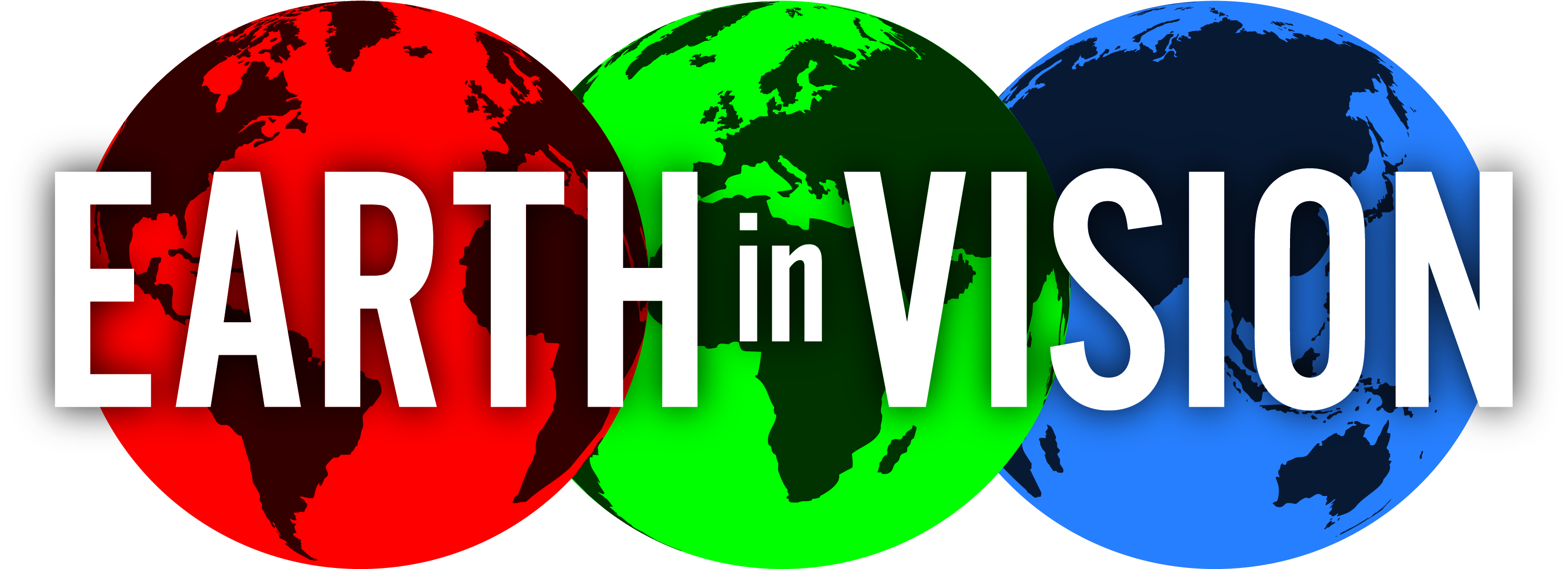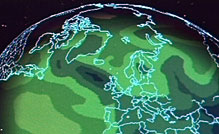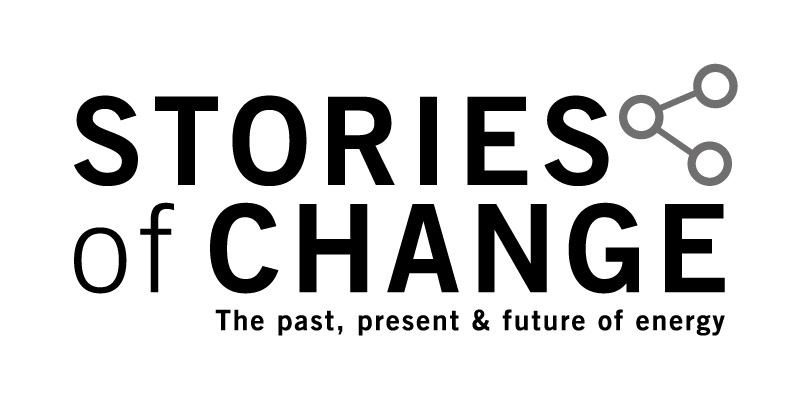David Allen
David is a multi Emmy-award winner with a prolific twenty-year career as a leading Producer in his field. He now heads up a large team of leading creatives, producers and experts across Passion Planet’s specialist output at Passion Pictures Films.
These include a wide and varied range of tailored approaches, formats and genre – from authored narratives like the acclaimed My Life As A Turkey– to ambitious landmark series like Earth: A New Wild, for National Geographic and PBS. Passion Planet has already garnered thirteen international awards, including Wildscreen Golden Panda and two Emmys.
Transcript
Wildscreen, 20th - 23rd October 2014
Earth in Vision Project
I am David Allen, I’m a producer, I have a small company called Passion Planet, which is within a larger company called Passion Pictures and we make stories, mostly environment… no, I make natural history films, science, so landmark television, and we have a theatrical release arm that makes bigger theatrical release documentaries.
Natural history: How I got started
We had a small house in the woods and I was a teenager and I was three miles from anywhere and I was bored rigid and the only way I could possibly get any interest was sitting round trying to take photographs of birds. And then I trained as an architect and everyone thought my buildings weren’t very good, but my photographs were brilliant, so I thought I better follow my first love.
Environment on television: What has impressed me?
Gosh, so many. I just did a talk on narrative story and I grabbed, in ten hours, the twenty most influential films I could think of at the time where I could get off the internet, and they were incredibly varied in what they have said and done over the twenty years, but they all have fantastic narrative. But if I’m thinking environment now, certainly Decade of Destruction was a very pertinent… I don’t know what it did in terms of the public, but in terms of our industry it was huge, that kind of timescale, trying to do a programme over that timescale in dealing with the planet and environmental destruction that none of us had even considered at any length was very powerful for our industry. I don’t think anyone particularly watched it.
Mixing natural history and the environment
We did The Unnatural History of London, which was, gosh knows what impact it had, but it certainly was, doing a natural history film around London was fascinating. It was all about extraordinary characters who’d fallen in love with pigeons or foxes or a little lady who couldn’t get out of her tower block who would call out every day at four (and she was ten stories up), but four or five different foxes would come, she would know all their names, she’d feed them by chucking over sausages out of the balcony to these foxes, who would sit, who’d wait, they’d learnt to sit down on the grass below before they got their sausage. And another woman who’d started a pigeon blog about following the pigeons that commute on the tube and all the rest of it. So there was a whole love of the natural history world which is a very, very interesting, fresh, take on natural history in the urban environment, certainly for someone like Natural World to take on, where they’re normally miles away.
My new series: Earth A New Wild
We’re now doing a film, we’ve just finished a film on essentially what was the anthropocene, which we called Age of Man, but the word ‘man’ was a problem, so it’s now Earth’s New Wilds, that’s the iterations one goes through to sell these things. And that started off on this classic Planet Earth, the famous BBC, brilliant Planet Earth series, if an alien looked back, broadcast that or picked it up from deep space and picked up Planet Earth, all five series and watched it as a sort of tourist’s brochure to planets to visit and then jumped in their spaceship and came down to planet Earth, they would literally be so furious with the producers of the pamphlet; planet Earth wouldn’t look anything like what the Planet Earth on those shows looks like. So we sold an idea to go and tell the real Planet Earth, which basically says there is no wilderness, nowhere is man’s footprint not absolutely trodden all over the natural world. And if you look at it in those terms, if you throw away this ideal of wilderness, you throw away this archaic idea of wilderness, then you can start to understand the earth, the animals within it and start to learn to live alongside them.
Earth A New Wild: How I got the commission
It came about because PBS became one of the donors of a large foundation that was pushing money towards science, environment and those kind of areas and the subtext to that was if no one else is telling the story, our funding will help tell that story. So it definitely had a non-commercialised input of cash and that wouldn’t have been told by any commercial broadcaster.
… and the budget?
It was a big budget, it had to be a big budget, the point is it’s so unfair, if you’re trying to tell these stories and you can’t compete at the big budget level, it’s just everything on the amount of money per minute of footage you’re spending is critical to our stories, absolutely critical. And so if you’re competing with a tenth of the money of the rest of your industry, then your stories… well, you’re just going to have to work ten times harder to make those stories impactful or interesting.
Attracting an audience: What money can buy
Totally, texture, variety of location, expense, they can sniff the expense of a programme from a long way off and that gives it an import, I think. People take note of something like Planet Earth, because it’s so glorious and beautiful, and they know when something’s cheap and they know when something’s expensive.
Do you think it’s true that natural history and environmental television don’t mix?
I think that’s totally true: I think we’re completely and utterly schizophrenic on that, that we are in love with the natural world and animals and telling stories about the natural world and animals; and then we somehow take on this responsibility or mantle of the environment that they live in that is being destroyed all around us. And that is an agony for the industry for sure, and really, really complex for them, because the primary thing about everyone here, the obsession here, is with story, and stories need a happy ending and people want to be uplifted by stories, that is the innate desire of us humans to have a story told to us and for it to be uplifting and have a happy ending, and the environment certainly does not do that.
So, there are stories out there now where people are making shows about the Beluga fish which were larger than Great White sharks, were giant things swimming around our European waters and now are extinct. They’ve made a film, the scientist goes out there, they’ve made the film of this beautiful fish and there is no other conclusion that this fish will not exist anymore, it is extinct through our own desire for its salty eggs. So there’s a beautiful fish, a beautiful film’s been made about a relationship between humans and fish, but ultimately it’s a pretty depressing final conclusion for anyone to take.
Earth A New Wild: Natural history, environmental issues and compelling stories
So for this show we really went down the big, epic, blue chip set up by the BBC mould, which is to take giant bio-zones, planets, sorry, to take jungles, mountains, oceans, these huge areas, that’s their big, epic format and we took the same format and then subverted from thereon in. So we went to the oceans, but we looked at it with how people were affecting the oceans; we went to the jungles, but tried to understand the relationship between humans and jungles, but went deep into these places in exactly the same way, with exactly the same creative and natural history teams, but just looked at the real picture of the chimpanzees that are almost certainly extinct, because their forest is so tiny. The only way they could possibly, genetically remain viable is to have a relationship with humans, have corridors created with the villages they live with and travel through that, and all the conflict that goes with that, right through to reindeer that were giant herds of reindeer which are semi-wild, semi-tame, where they’re lassoed every half year, some of them are wrestled to the ground and they’re castrated by the people’s teeth, they bite their balls off, so it’s that kind of relationship with the wild and the people out there. And we pretty much from the word go said, ‘We’ll never mention the word conservation,’ and we pretty much tried to throw conservation out at every turn to try and make it compelling, bums-on-seats television. And what’s great is the very concept was all about the planet and humans and the planet, so it’s completely steeped in its original concept and it doesn’t matter how much you throw out there the idea.
Extending television programmes through new media
I think every big project has an outreach programme now with it and the investment in that and the reach it actually has I think is incredibly variable, but it’s something that we seem to be… Broadcasters are very much involved in that space, completely. I think we have to be quite careful at the end of the day that we are filmmakers, we can’t be everything to all, we’re making films out there, and that, in some ways, feels tough enough. I can’t also be a multimedia generator, political-lobbyist-cum-conservation… So I think those spaces are also getting filled up by people who are experts in that genre. I think it’s probably more cross fertilisation between both, rather than everyone trying to do everything.
The importance of storytelling
Well there’s a growing body of literature out there that suggests a story is critical and innate to all, we are all storytellers and humans desire it in their very inner core, and there is a structure to that storytelling that is completely set in some way in our DNA, and the artists of storytelling almost always throw out that theory, the idea that that theory can be quantified, in horror; but the theorists who study it say they conform to it in perfection, they just do it innately. So I think, we know story is huge, it’s just there is also an incredibly fragmented media landscape now where I think probably that language is infinitely complex in how it gets broken down and broken up and how people digest it.
Were you tempted to avoid showing the true state of the planet?
No, no. I was given a blank sheet to do a series on conservation and the first thing I thought was, ‘Fantastic, I’m going to tell it really as it is,’ and every single NGO, every academic who’d studied any of it said, ‘Don’t tell it how it is, that’s the worst thing you can do.’
Telling it how it is without the ‘C-word’
In Earth: A New Wild we are using the storytelling device to go on an adventure to the ends of the earth to understand the planet. The revelation you come to understand is that people are everywhere. The key is absolutely the word ‘conservation’ is not used around the series. The series is called Earth: A New Wild and it’s about reconnecting, re-understanding the wild as it really is. Now conservation is just a huge word, there’s no reason to use that word, there’s no reason to attach it to it in any sense and storytelling is always about the two plus two, never showing necessarily that it equals four; the audience has to come to the four for themselves. So maybe the four at the end of the day at some level is the word conservation, who knows, but you don’t want to bring it that way. And there’s fascinating studies, much more political studies in America about going anywhere near climate change, where even words that are in any way connected to people’s standard of living and politics, if you in any way link that to them, they split instantly into what they feel they should be, what their persona is. So in a way these programmes are about whatever people want to make programmes about, they’re not about conservation, they’re just telling the truth about the real world, I guess. You’ve just got to be real about what’s out there.
What I will be working on next
“Age of Man II”, hopefully. We’ve now established that there is no wilderness, man is everywhere. I think now I want to go out… I think all over the world now we accept that Earth is changing at a rapid rate, that’s becoming accepted across the planet now, so I want to go and look at how that change is happening in the natural world and how the natural world is adapting to it, and that includes an understanding of time within change. Everything in this is about speed of change, we’ve changed everywhere, we’ve done change before, it’s all about the speed of change, looking back at evolution, how fast evolution happens, how fast adaptation happens, and it’s not all as we think. They went and looked at evolution and Darwin’s finches and found out it was happening in 25 years, not 25 million years, so there is interesting stuff out there to understand and if people only get a sense of time and change, that’s already something critical that they need to understand.
Releasing the BBC natural history archive: The potential
I think the release of digital archive in any sense, even as it is today with the BBC, you pay for it and you pay a healthy fee for it. I think it’s critical, I think it’s already impressive, the ability to get hold of BBC archive or National Geographic archive. It’s led by money, but it’s critical that I don’t go and film a polar bear on a piece of ice just because I desperately need that image, when someone’s already shot it five times over, and it’s absolutely critical we don’t double up in those senses. And so often we do use key images of archive from broadcasters to build sequences around, and we then film our own bits around it and create our own story around those images, but definitely in terms of natural history we should absolutely be allowed, be able to use that and not duplicate those efforts.
Giving it out to the public, giving it out free and forcing it all out there as a… sounds like a great idea, like NASA does or whatever it might be. I think the people that use it will be the broadcasters or the programme makers that will know how to delve deep into it, regurgitate it back out in story form. They’ll have to spend a lot of money doing that in terms of research and access and reduplication, so all you’ll be doing really is cutting down on the fees of access to it. I don’t think it will create a deluge of ultimate programming around natural history imagery.
Planet Earth: Optimist or pessimist?
Oh, I think definitely pessimistic. If anyone’s looking around at what they are really seeing, definitely pessimistic. And I think most of us then meet scientists who are really at the coalface, because we’re not, but we meet naturalists, scientists and people who have lived right at the coalface of I guess biodiversity more than anything else, but they take you aside and you have a whiskey with them round the campfire and their message is gloomier than anyone ever hears really, there’s a much gloomier message out there than the public can take.
<End of Interview>
Explore more...
-

Earth in Vision
Learn more to access more details of Earth in VisionInterviews with media producers, from the icons Sir David Attenborough & Desmond Morris, to new digital natives. This is an important historical collection and a powerful resource for anyone wanting to make or think about environmental media.
External link
-

Creative Climate
Learn more to access more details of Creative ClimateHarnessing the power of creativity to tackle environmental challenges—an ambitious long-term diary project from The Open University
External link
-

Stories of Change
Learn more to access more details of Stories of ChangeThese interviews have been recorded by the BBC’s Environment Analyst Roger Harrabin, and they capture the thinking of leading players in climate change and energy debates at a critical moment in the global conversation.
External link
Rate and Review
Rate this video
Review this video
Log into OpenLearn to leave reviews and join in the conversation.
Video reviews